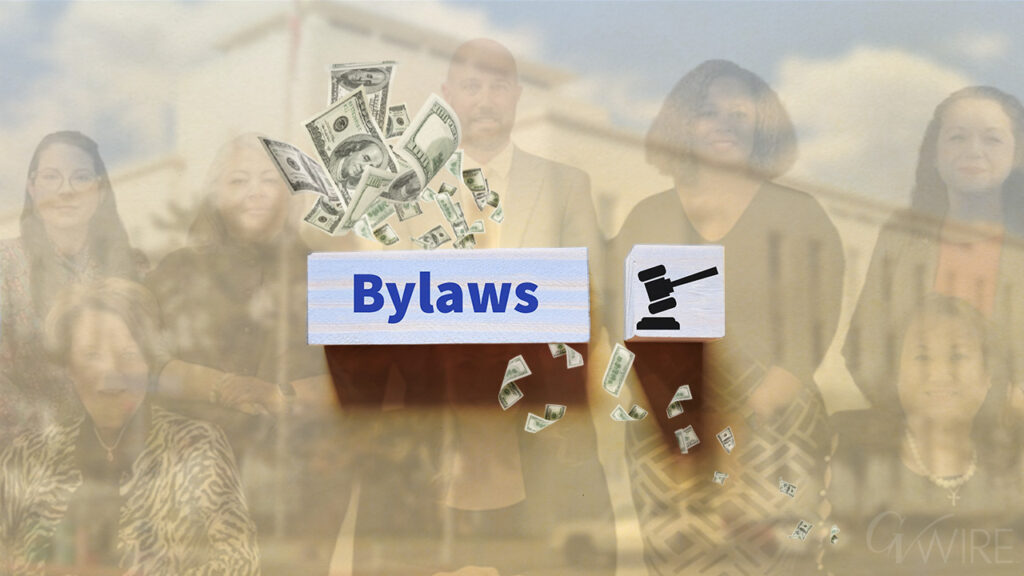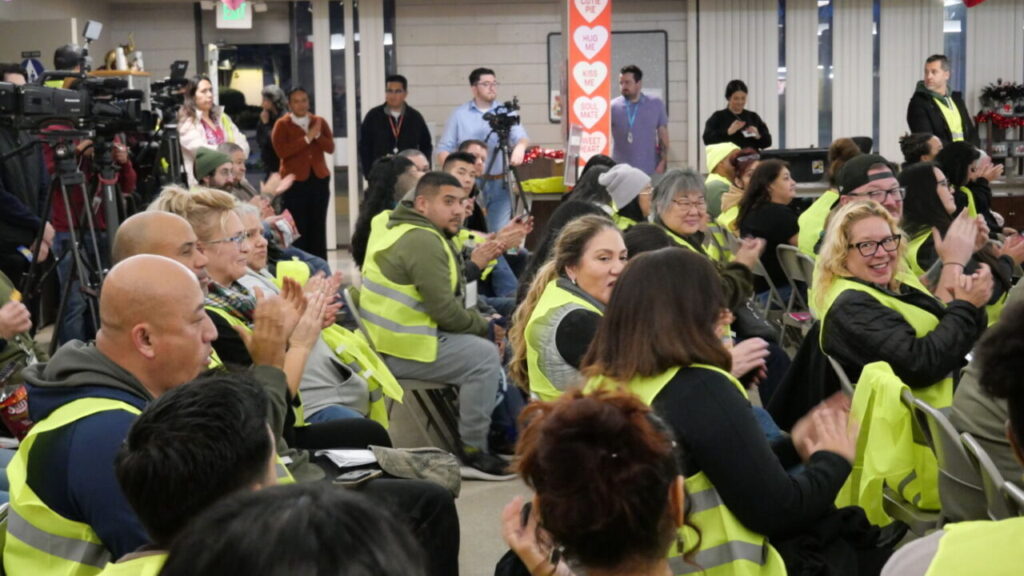Despite working harder than previous generations, Millennials face stagnating wages and burnout due to unstable job conditions and inadequate work-life balance, ultimately leading to a trend of "quiet quitting" as they prioritize mental health and seek better workplace environments. (GV Wire Composite/Paul Marshall)

- Millennials struggle with job insecurity, leading to burnout and the rise of "quiet quitting" as a form of self-preservation.
- Quiet quitting is doing what's expected without extra effort, challenging employers who expect constant overcommitment without rewards.
- Gen Z observes Millennials' struggles, learning not to fall for the same exploitative work practices, demanding better work-life balance.
Share
|
Getting your Trinity Audio player ready...
|

Anthony W. Haddad
The Millennial View
It’s a simple ask: a livable wage without working ourselves to death.
“Back in my day…” Oh, save it, Gregory. Back in your day, homes were affordable, groceries didn’t require a second mortgage, and you could actually enjoy a social life. Remember when a McDouble was a dollar? Those days are long gone.
Millennials and younger generations entered the job market during or after the Great Recession, facing underemployment, job insecurity, and, in my case, companies like Bitwise Industries, where the CEOs were less than honest about their finances.
We’re terrified of losing our jobs, so we have been doing double the work just to earn that gold star sticker at the end of the day.
Just work more to earn more money? OK, Barbara, we do that. We don’t have pensions to look forward to or the luxury of knowing we’ll see Social Security, so yes, we work more to cover groceries and maybe even retirement. Enter the gig economy and freelancing, which offer less stability and inconsistent incomes, not to mention a lack of benefits and career advancement.
Working weekends? Sure, Stanley, we’ll work the occasional weekend. But the blurred lines between work and personal life lead to burnout. If we can’t find time to hit the gym, cook a decent meal, or spend a moment with our families — or even squeeze in a date or two — we’re destined for burnout. The expectation to be always available, keeping us always in “work mode,” creates a culture of quiet quitting.
Related Story: JD Vance: A Millennial in Age, but Not in Spirit
Quiet Quitting Is Still Doing Your Job, Just Not More Than That
What is quiet quitting? It’s doing only what’s expected — nothing more, nothing less. We read our job descriptions, do what’s in them, and go home. Employers hate it because they want us to show “commitment” for promotions that might never come. But, we ask ourselves, why sacrifice our personal lives for a job that would replace us in a second?
When our friends are out in Paris for the Olympics but you know that you have to work 30 hours of overtime just to buy a croissant, you start to wonder what the point is. We are constantly comparing ourselves to our peers on social media, seeing how they can travel all of the time when we’re still behind a desk. That pushes the idea of quiet quitting because they are able to enjoy life by doing less work, so why can’t you?
Past just the fun trips your friends take, they also post about their workplace and all of the fun perks that they receive since their company values a work-life balance. But, for majority of millennials, even asking for a day off that is granted to us in our employment contracts is a scary gamble.

Mental Health Is Declining, Don’t Be the Cause
We spend 8-12 hours, sometimes more, at work. A positive workplace culture is crucial for job satisfaction and mental health. But with toxic environments, lack of support, and inadequate recognition (yes, a gold star would be nice for millennials), it’s no wonder job satisfaction and mental health suffer.
“Mental health? Your generation is just a bunch of babies!” Well, Lucy, this baby is about to throw a tantrum. Mental health today is not the same as it was before those little devices in our pockets keep telling us that we are poor, fat, and ugly. We’re constantly self-analyzing: Are we doing enough? Are we up-to-date? Why are there so many cute couples on vacation while I’m eating a burrito on my couch?
Many millennials are quitting jobs without another lined up, prioritizing mental health. We’ve seen the consequences of neglecting it, usually resulting in a funeral. So yes, Sally, we’ll prioritize our well-being because we value life. Even if we were to be caught by unfortunate circumstance, our job will be on the company’s career page in a week regardless.
Related Story: Swipe Culture vs. Genuine Connection: The Millennial Dilemma in Modern Dating
Employers, You Can Fix This … or Don’t
What can employers do to address quiet quitting? Start by actually listening to your employees. Hear them out, understand their perspectives, and take action. If you’re not from the same generation, try to see things from their point of view instead of dismissing it as mere “complaining.” Or do nothing and spend more money hiring replacements.
But here’s a shocker for employers: happy employees actually work better! They’re more productive, engaged, and committed. Imagine that — when people feel valued and supported, they put in more effort and deliver better results. It’s like a win-win situation!
Unfortunately, many employers fail to act because they don’t see immediate benefits. So, the cycle of quiet quitting continues. Employees are left to fend for themselves while employers miss out on the simple truth that investing in their workforce pays off in the long run.
Related Story: JD Vance: A Millennial in Age, but Not in Spirit
But don’t worry, employers, you can just hire the next generation. They’re still green and naïve, right? Wrong. So wrong, you’re cooked. Generation Z is the most observant generation, growing up with the technology that Millennials were handed, and they’re watching.
They see the burnout, the exploitation, the endless hustle, and they’re not falling for it. They’re smarter than we were at their age, and they’re learning from our mistakes.
The only hope for U.S. employers is to care about people over profits. If not, Gen Z will see right through the charade, and then what? They’ll quietly quit before you even realize what’s happening, and you’ll be left scrambling to fill roles with people who won’t tolerate the same old song and dance.
–
Connect with Anthony W. Haddad by email or on social media.
RELATED TOPICS:
Categories



















